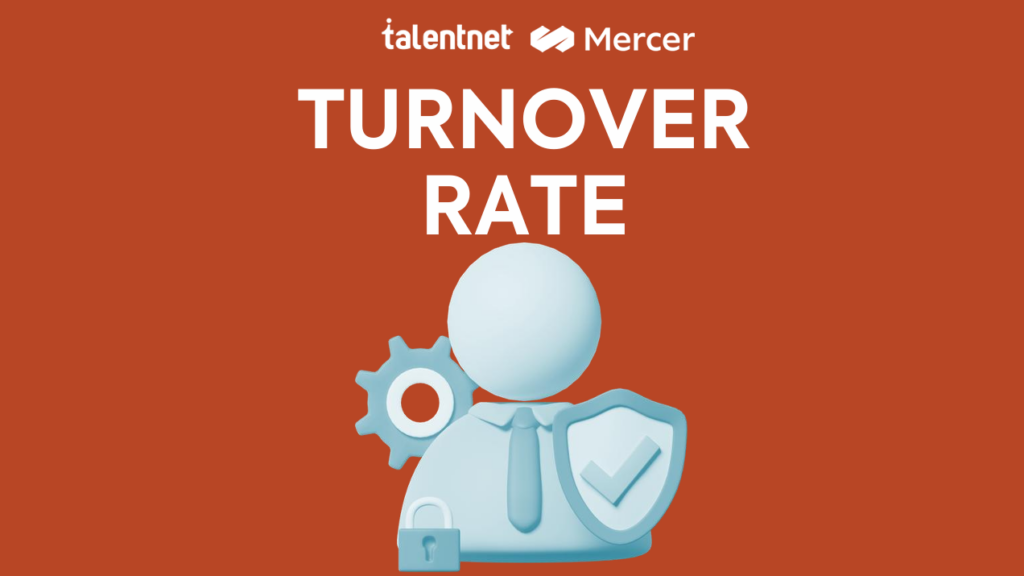Gen Z by the Numbers Reveals a Tough Recruitment Challenge for Businesses

Nov 7, 2025
Last updated on Nov 7, 2025
Gen Z, the generation that accounts for nearly one-third of the workforce, is rewriting the rules of recruitment. Behind this image of a dynamic, creative generation, however, lies a strategic threat to the survival of traditional management models.

Key Takeaways
- Gen Z is now over a quarter of Vietnam’s workforce, but they face a shrinking job market and a set of expectations that clashes with business realities.
- Nearly 75% of managers admit they find it hard to work with this generation, while only 25% of Gen Z feels truly prepared for the workplace. This “confidence gap” is driving up hiring costs and turnover.
- Loyalty means something new: Gen Z’s time at one company is much shorter than previous generations’. They aren’t abandoning their careers; they’re abandoning workplaces that don’t offer them value.
- Successful Gen Z recruitment demands a total overhaul: you must rebuild your employee value proposition, modernize the Gen Z hiring process, and bridge generational divides—not just try to “fix” the new generation.
Gen Z, the generation that will soon make up the majority of the workforce, presents a tough management and recruitment challenge. The 2025 Talentnet-Mercer Total Remuneration Survey, along with global research, doesn’t just paint a portrait of a generation; it decodes the hidden conflicts and expectation gaps that are widening in the workplace. This article will dive deep into these core challenges to help leaders “decode” Gen Z and rebuild their talent strategies.
These conflicts don’t exist in isolation; they overlap and amplify one another, creating a complex problem that traditional hiring methods can no longer solve.
A shrinking market and an anxious generation
The global economy and rapid technological change have created a much smaller job market for entry-level roles. Gen Z is stepping into a job market that is far more competitive than what their predecessors faced.
This doesn’t just create a more practical attitude toward work; it keeps Gen Z in a constant state of “hunting” for a better opportunity, even when they already have a job. Traditional jobs are disappearing fast, while the skills the market demands are constantly changing. Data shows that the “critical jobs” companies need to fill to hit their business goals have changed significantly, with Sales & Marketing, IT, and Engineering now leading in demand.
This gap isn’t just about technical skills; it’s also about mental readiness and different expectations for the workplace. Companies can’t find people with the right skills, and Gen Z feels they aren’t properly equipped to meet what the job requires.
The breakdown in expectations and trust
This is the central conflict, and it’s the one costing businesses the most right now.
From the manager’s perspective: Leaders are facing something they’ve never seen before. “Ghosting”—suddenly cutting off all communication during the hiring process or even after accepting an offer—is becoming more and more common. A recent study from Resume.org found that over half of all recruiters have been “ghosted” after sending an offer letter, and 66% believe this trend has made the recruitment processes much harder.
This “ghosting” happens at several different stages:
- 24% of candidates disappear before the first contact is even made.
- 41% stop responding after the first outreach message.
- 38% vanish after an interview.
- Some even accept the offer but never show up for their first day.
From Gen Z’s perspective: Only 25% of Gen Z feels ready for the professional world.
They feel held back by many things: a Gen Z hiring process that is too long and not transparent, a lack of clarity on pay and promotions, and a company culture that doesn’t match their personal values.
Notably, research from LinkedIn shows 72% of Gen Z has quit or considered quitting a job due to a lack of flexible policies.
This gap doesn’t exist because Gen Z is “picky” or “uncommitted.” It stems from a completely different set of expectations. While businesses still run on a “contribute first, get rewarded later” model, Gen Z expects a two-way street where value is exchanged immediately and continuously. Most of this generation sees purpose in their work as the main driver of satisfaction—a factor many Vietnamese companies still struggle to communicate effectively.
Loyalty, redefined
Data from the 2025 Talentnet-Mercer Report shows Gen Z’s time in a single role is much shorter than previous generations’—only half as long as Gen Y2, almost a quarter of Gen Y1, and less than a fifth of Gen X. This isn’t a sign of non-commitment; it’s a completely different philosophy about work.
The voluntary turnover rate in the first half of 2025 fell to a record low, showing the impact of a tighter job market. This doesn’t mean Gen Z has changed its mind about loyalty—they are just waiting for a better time to make a move.
For Gen Z, loyalty is no longer about a long-term attachment to one company. Instead, it’s about matching values and finding growth opportunities at a specific point in their career.
They stay when they feel the company is investing in them, they are respected, and they have a chance to learn.
They leave not because they lack resilience, but because they know their value and aren’t afraid to find a better fit.
High-pressure, low-flexibility industries are struggling with attracting Gen Z employment, while industries that invest in talent development and smart compensation are retaining them much more effectively.

Does your company truly understand Gen Z, or are you just applying old expectations to a new generation? Download the full report for a detailed analysis of turnover, tenure, and Gen Z retention factors by industry in Vietnam.
Rebuilding the recruitment playbook to attract Gen Z
It’s clear that traditional Gen Z recruitment methods are no longer working. To win this talent war, businesses need a revolutionary change, not just a minor update. Here are the core strategies, built on insights from the Vietnamese market and global trends for 2025-2026.
1. Rebuild your Employee Value Proposition (EVP)
Gen Z is no longer convinced by traditional promises of a “stable job” or a “clear career path.”
They are looking for a completely different value proposition, one that focuses on three main pillars:
- Empowerment for self-development. Instead of a rigid, linear career ladder, Gen Z wants diverse and flexible learning opportunities. Data shows the average time it takes for a Gen Z employee to get promoted is similar to other generations—but they care about more than just a new title. They want access to new projects, different skills, and multi-dimensional roles. Successful programs often include internal training with external certifications, job rotation opportunities, and mentorship that connects high-potential talent with senior leaders.
- Flexibility in the work experience. According to a 2025 Gallup survey and other global sources, only about 23% of Gen Z prefers to be fully remote, the lowest of any generation. This doesn’t mean they want to return to a traditional office. It means they value a hybrid model and true flexibility—where they have the autonomy to decide when and where they work based on their performance, not on the hours they sit at a desk. In 2026, with over a third of companies planning to expand hiring and nearly half holding steady, companies with clear flexible policies will have a huge competitive advantage in attracting young talent.
- Personal recognition and compensation transparency. Gen Z doesn’t want to wait until an annual review to get feedback. They expect a culture of frequent feedback, where their contributions are recognized in a timely and specific way. Most importantly, they demand transparency in pay—Gen Z sees clear salary information as a deciding factor when choosing an employer.
2. Modernize the hiring experience
The Gen Z hiring process isn’t just a screening tool; it’s the candidate’s first experience of your company culture. For Gen Z, a bad hiring process is a reason to say no before they even find out the salary.
Speed of decision-making 58% of Gen Z candidates will drop out if the hiring process takes longer than 22 days. For a generation used to on-demand services, waiting weeks for a simple reply is unacceptable. Recruiters must now set expectations for commitment at the very start and stay in touch with candidates between the offer and the start date to reduce “ghosting.”
Technology and authenticity Recruiters are now using AI to optimize the hiring process. However, technology must be balanced with a human touch. Gen Z values transparency and researches companies thoroughly before applying—they don’t just look at the website; they check social media, read reviews from former employees, and look up related news.
Hiring based on real-world skills Structured apprenticeship programs—which move high-potential students into management roles within a few years through rotations—are proving highly effective for Gen Z recruitment. But how many Vietnamese companies actually have programs like this?
3. Build bridges between generations
One of the reasons 75% of managers struggle with Gen Z isn’t because this generation is “difficult,” but because of a fundamental difference in how they approach work. Data shows a major generational gap at the management level, which creates a clash in working styles in multigenerational workforce.
Reverse mentoring and a culture of continuous learning Top companies have successfully launched flexible career programs based on personal purpose and allow employees to try new roles through internal mobility. Businesses need to shift from a “know-it-all” culture to a “learn-it-all” culture—one where Gen Z feels encouraged to ask questions, experiment, and learn from mistakes without being judged.
Understanding the disconnect between managers and Gen Z is the first step to building a harmonious work environment. Regular employee engagement surveys help businesses understand the needs and expectations of each generation, allowing them to adjust their strategies.
In 2026, as the economy grows and the labor market continues to tighten, the most successful companies will be those that create a truly compelling value proposition for Gen Z. Understanding how this generation is reshaping HR policy isn’t just an advantage; it’s essential for staying competitive.
Businesses need to build a competitive compensation structure based on real market data, not on guesswork. Don’t let your company fall behind in the war for future talent. Participate in the Talentnet-Mercer Salary Survey to get the most up-to-date market data and build your talent strategy on real-world insights

Solve your HR problems!
6th Floor, Star Building, 33 Mac Dinh Chi, Saigon Ward, Ho Chi Minh city, Vietnam





